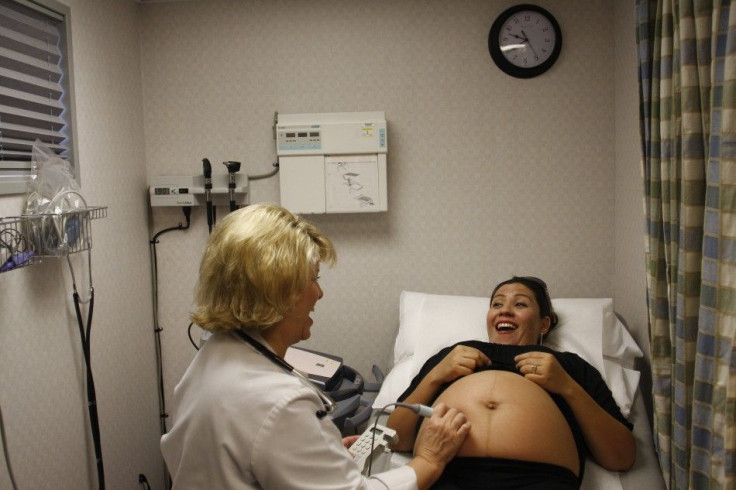Umbilical Cord 'Milking' Can Help Premature Babies Born Via C-Section: Study

A recent study claims that massaging the umbilical cord of babies born prematurely, via cesarean section, helps improve the level of red blood cells in the infant. The benefits of doing so appeared to be greater than the standard practice of waiting for 60 seconds to cut the umbilical cord.
Researchers believe that cord massaging, or "milking," also helps improve the blood pressure and facilitates greater blood transfer to and from the baby's heart. Cord milking refers to the technique of gently squeezing the umbilical cord with the fingers. The pressure gently pushes blood from the umbilical cord into the abdomen of the infant.
The lead researcher, Dr. Anup C. Katheria, realized prior to the study that delayed cord clamping does not reduce the risk of intraventricular hemorrhage in the infants delivered prematurely.
Hypothizing that the use of an anesthetic during the cesarean section procedure impedes the blood flow through the umbilical cord, the researchers decided to study whether cord milking has any impact on the quantity of blood supplied to the newborn.
During the study, the infants delivered via cesarean section were divided into two groups: those who received cord milking and those who had delayed cord clamping. Babies delivered vaginally also were randomly divided into the two groups.
“The researchers found that the infants delivered by cesarean section who received cord milking had higher blood flow in the vein carrying blood from the brain to the heart and a higher output of blood from the right ventricle compared with those who received delayed cord clamping,” Medical News Today reported.
The complete study has been published in the journal Pediatrics.
© Copyright IBTimes 2025. All rights reserved.



















